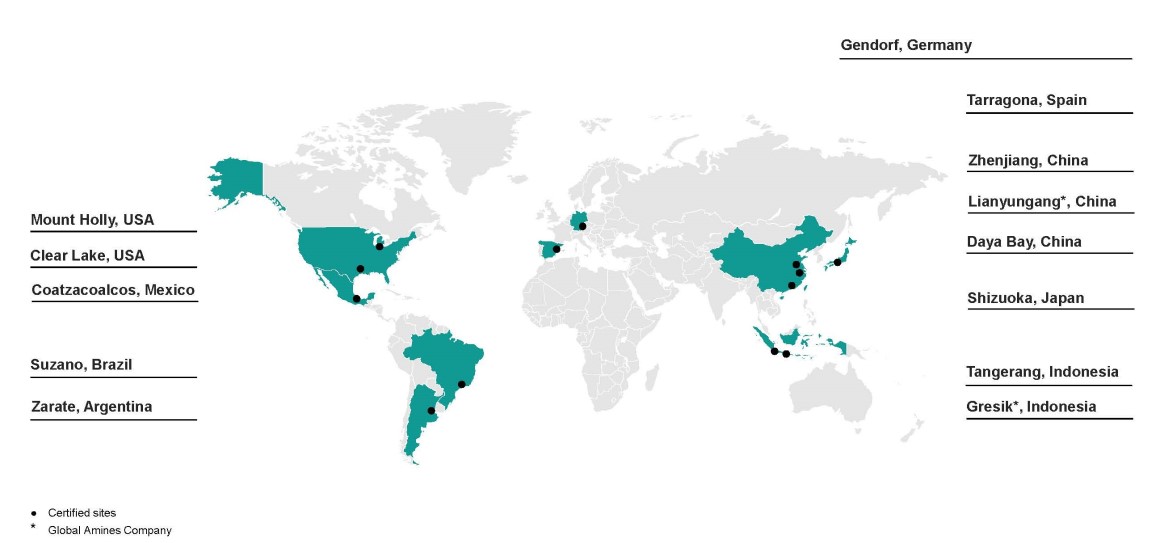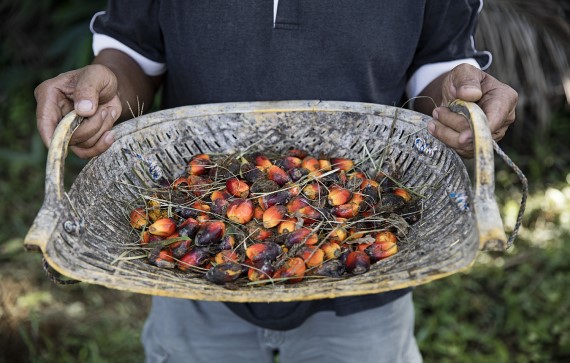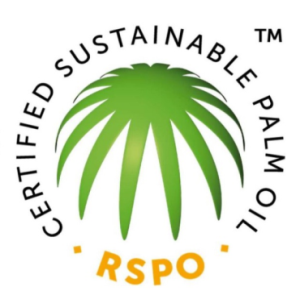Sustainable palm oil
A long-term vision for a sustainable palm oil industry
A sustainable bioeconomy is increasingly recognized as a way to enable society to live well within the limits of our planet. By using bio-based chemical products, and integrating circular economy principles, industry has the potential to reduce its dependence on fossil feedstock and thereby reduce related greenhouse gas emissions.
Palm oil, palm kernel oil, and its derivatives play an important role as a raw material for bio-based chemical products. However, the increased use of palm oil-based raw materials can open discussions on deforestation, loss of biodiversity, and competition with food usage. Clariant recognizes its responsibility to protect nature and the lives we touch. That’s why we put sustainability at the heart of our sourcing activities.
We are committed to the sustainable sourcing of palm oil, palm kernel oil and its derivatives, in line with No Deforestation, No Peat and No Exploitation (NDPE) principles, and to collaborating with suppliers to increase transparency in the palm oil value chain for sustainable development.
Our commitments at a glance
Clariant strives to build a palm oil supply chain free from deforestation and peat, while respecting human rights and supporting local livelihoods. By 2025, Clariant targets to transition to the sourcing of 100% RSPO (or equivalent) certified palm-based materials, as far as commercially available on the market. We strive to source exclusively from suppliers compliant with No Deforestation, No Peat, No Exploitation (NDPE) policies.
Clariant strives to work in close collaboration with its direct supply chain, critical stakeholders and customers, to promote greater transparency and grow the market share of certified products. We work with scientific, technical and industry bodies to foster on-the-ground projects and public-private partnerships to increase the inclusion of smallholders in the value chain.
We share our progress regarding our palm oil commitments publicly on an annual basis in our Integrated Report.
Our progress
Clariant predominantly uses oleochemicals that are derived from palm kernel oil and/ or palm oil. The volumes of palm-based raw materials purchased annually are communicated by Clariant to the « annual communication on progress » report (ACOP) published by the Roundtable on Sustainable Palm Oil. In 2022, approximately 16% was RSPO Mass Balance certified material (volumes include Global Amines, a joint venture between Clariant and Wilmar International, Asia’s leading agribusiness group).

Clariant International Ltd., 2022
On a yearly basis, Clariant, together with the Action for Sustainable Derivatives, undertakes an evaluation and transparency mapping of its palm oil supply chain. With a coverage of over 92% of the volumes in scope, the 2022 evaluation led to a transparency rate of 86% for refineries, 83% for mills, and 31% up to plantations level. The list of mills included in this evaluation can be accessed here.
Since 2016 the most relevant production sites have been RSPO certified, following the Mass Balance certification rules. This enables the company to sell sustainable products that are produced with certified palm-based oleochemicals. Clariant has a portfolio of over 200 palm-derived products that can be offered as RSPO MB certified, which we continue to promote in partnership with our customers and other stakeholders.
Since 2023, Clariant is working together with the non-profit organization Earthworm Foundation in order to review and further develop our internal management processes related to the identification and follow-up of potential grievances in our palm oil supply chain. With its strong presence on the ground, Earthworm will support us in finding solutions to environmental and social challenges within our value chain to live up to our No Deforestation, No Peat, No Exploitation commitments.
Partnerships for sustainability
Besides working on the transparency of our supply chains, Clariant works with experts in the field to manage the specific environmental and social issues connected with the sourcing of palm oil and palm-based derivatives. These partnerships and collaborations include:
RSPO-1106201
Check our progress at www.rspo.org
Round Table on Sustainable Palm Oil
Clariant is a member of the Round Table on Sustainable Palm Oil, a global organization discussing sustainability issues around palm oil and its derivatives and setting the framework and standards for sustainability certification in the palm value chain.
>More

Action for Sustainable Derivatives
The Action for Sustainable Derivatives is a collaborative initiative, co-managed and co-facilitated by BSR and Transitions, two organizations with extensive experience and expertise in supply chain sustainability and business collaborations. The initiative brings together companies in the cosmetics, home and personal care, and oleochemicals industries to collectively tackle supply chain issues around palm oil.
>More

On-the-ground projects
Specific projects to support independent smallholders to improve their quality of life include special projects such as the SPOTS (Sustainable Palm Oil and Traceability with Sabah small producers) and the SPIRAL (Small Producer Inclusivity and Resilience Alliance) initiatives to foster sustainability in bio economy supply chains.
Additionally, Clariant Foundation supports ASD’s Impact Fund, where members collectively invest in on-the-ground projects that drive sustainable palm production in priority sourcing areas, such as Mosaik and HERrespect.
Upholding high standards
As a company we strive for a culture of continuous improvement and work in collaboration with our suppliers to achieve a sustainable and resilient supply chain. Clariant’s Supplier Code of Ethics is relevant to all suppliers, business partners and their contractors doing business with Clariant, and outlines our expectations. Clariant also expects all suppliers to ensure that their supply chain complies with the standards set out in its Global Policy on Sustainable Palm Oil. This includes the requirement for suppliers to create transparency of their entire value chain and to comply with No Deforestation, No Peat, No Exploitation (NDPE) policies. The increased transparency of our supply chain networks provides the foundation for improving sustainability in the value chain for palm oil and especially palm kernel oil and its derivatives.
Clariant is committed to dealing with non-compliance in its supply chains. Through the Clariant Integrity Line, anyone – external or internal – can report actual or alleged violations of our sourcing commitments. We understand that reporting actual or suspected malpractices takes courage and we truly value a speak up culture.
Downloads

Bioeconomy
Our commitment to creating a sustainable bio economy by protecting nature and maintaining high social standards



